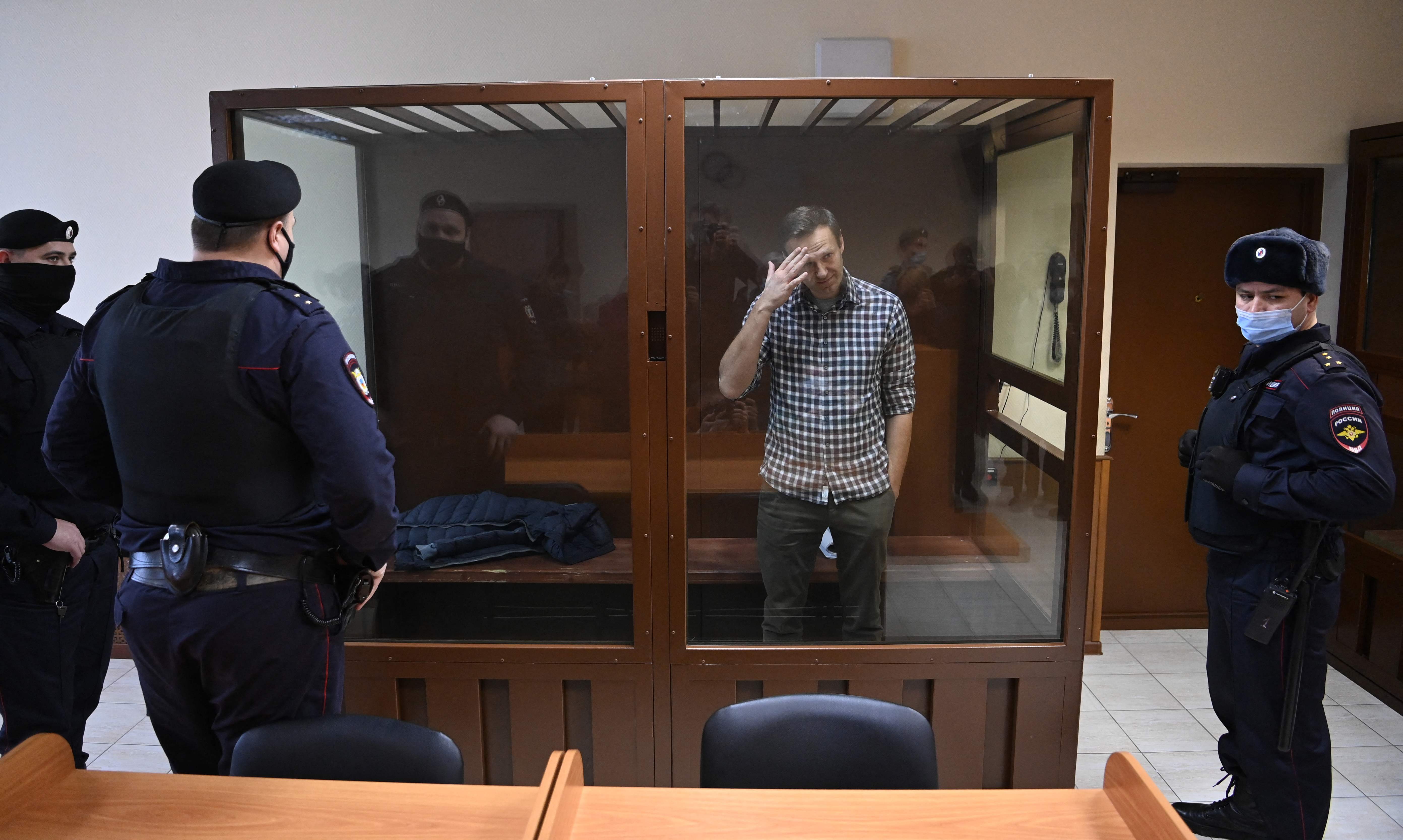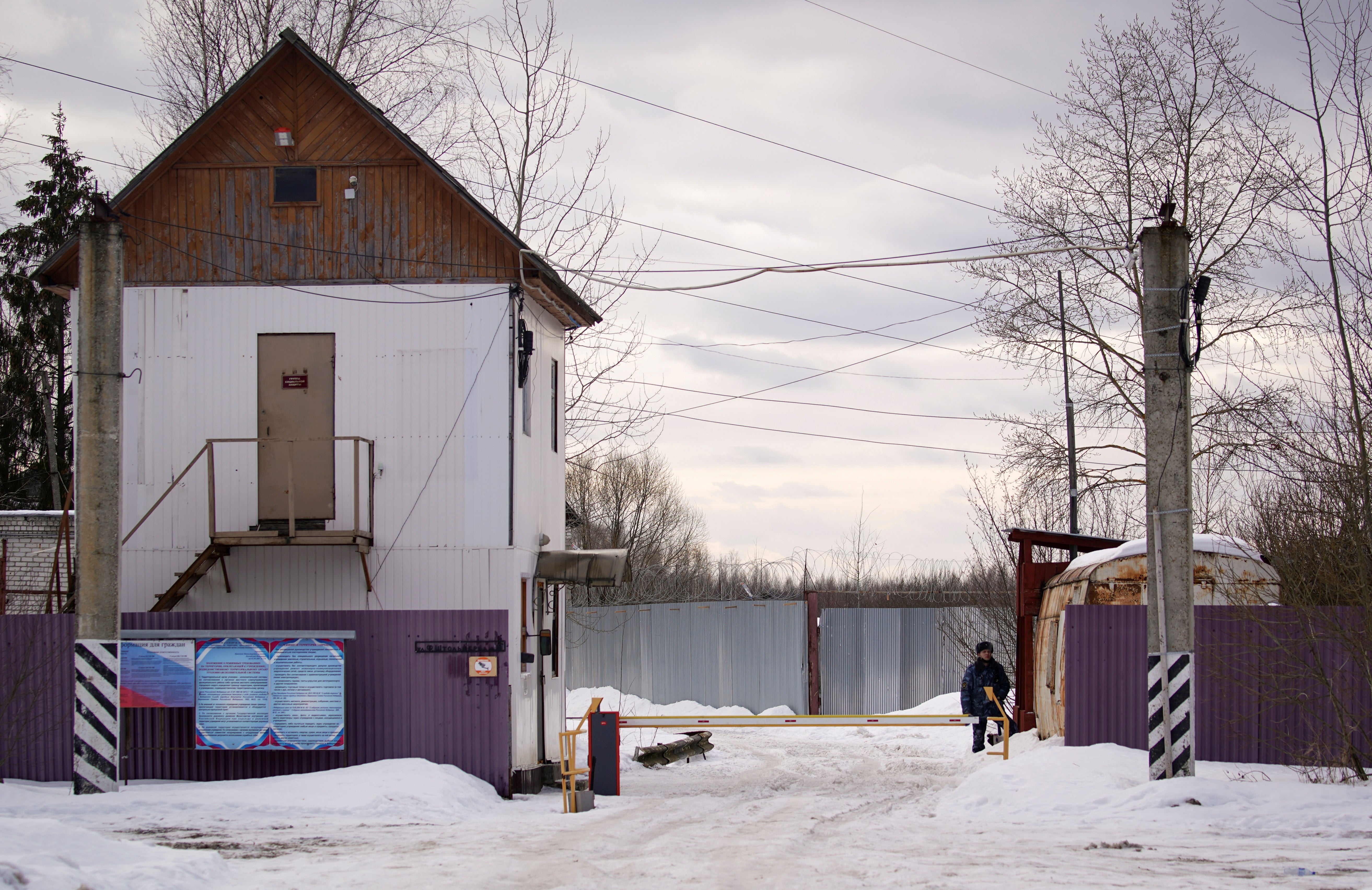‘Torture’ of Alexei Navalny exposing brutality of Russian prison system
Kremlin says hourly wake-up calls part of a system of ‘discipline and order’

Your support helps us to tell the story
From reproductive rights to climate change to Big Tech, The Independent is on the ground when the story is developing. Whether it's investigating the financials of Elon Musk's pro-Trump PAC or producing our latest documentary, 'The A Word', which shines a light on the American women fighting for reproductive rights, we know how important it is to parse out the facts from the messaging.
At such a critical moment in US history, we need reporters on the ground. Your donation allows us to keep sending journalists to speak to both sides of the story.
The Independent is trusted by Americans across the entire political spectrum. And unlike many other quality news outlets, we choose not to lock Americans out of our reporting and analysis with paywalls. We believe quality journalism should be available to everyone, paid for by those who can afford it.
Your support makes all the difference.The drama of the Alexei Navalny story took a shocking new turn this week, with claims the opposition leader was facing a “grave” medical emergency barely two months into his lengthy prison term.
In a statement relayed by lawyers on Friday, Mr Navalny said he was experiencing serious pain in his back and right leg, and was unable to walk. The condition had likely been provoked by long periods of sitting in police vans – and exacerbated by a torturous policy of guards waking him up every hour while asleep.
“It’s quite upsetting – I’ve got quite used to my right leg over the years and I wouldn’t want to part with it,” he said in signature deadpan fashion.
Earlier this week, lawyers for Navalny said he was being “tortured”. The Russian authorities have responded by insisting Mr Navalny’s symptoms are “stable” and “satisfactory”. The Kremlin refused to comment on his complaints, but on Friday spokesman Dmitry Peskov claimed his treatment was consistent with prison guards “keeping order and discipline”.
On paper, Mr Navalny’s symptoms are consistent with a trapped sciatic nerve – not ordinarily a life-threatening condition. Supporters say the harshness of the Vladimir prison regime, a recent history of nerve agent poisoning, and the evidence of torture are reasons enough to be worried.
Read more:
The spectacle of difficult prisoners falling ill, and then denied timely medical assistance, is not a new drama for the Russian prison system, with dozens of high-profile cases over the years.
In the same week that Mr Navalny’s health nosedived, a critically ill pharmaceutical executive was making his own claims about “medical torture” in custody.
Boris Shpigel, the owner of Russia’s largest private drug manufacturer, also insisted he was innocent of corruption charges brought against him – arrested only because he “refused to share” his business with corrupt security officers.
Speaking to local media, Mr Shpigel said the same officers now seemed to be pushing him towards his death, denying him treatment for tumours and hypotension: “It’s the easiest option,” he said, “I’ll croak my last here, and then they will take away my business.”
The claims drew obvious parallels with the case of Sergei Magnitsky, a lawyer who died in jail in 2009 after discovering a massive VAT fraud by corrupt law enforcement.
The 37-year old was subjected to a campaign of torture, held in freezing cells and denied crucial medical assistance, when he refused to cooperate and frame his employers in the fraud. He detailed every infringement in meticulous complaints that went unanswered.
Mr Navalny, who has written two complaints to the head of the prisons service and chief prosecutor, will be hoping that his public following will be enough to bring about a different reaction. Already nearly 300,000 people have signed up to a call by his associates to protest for his release. The protests will be triggered once numbers reach half a million.
Those who witnessed the Magnitsky case firsthand say Mr Navalny’s health depends on him being moved to a better jail as soon as possible. Jamison Firestone, Mr Magnitsky’s immediate employer, said authorities would deny a problem up until the end.
“The Russian state will break a man if it wants to,” he said. “Sergei went in healthy – there was nothing wrong with him. And Navalny is still fragile. Novichok has lasting health effects.”
Russian jails have by far the highest death rate of European prisons, with the latest figures suggesting one out of every 200 inmates die each year. Denial of appropriate medical care is a major factor in the figures. On a very basic level, prisons don’t have appropriate medicines or doctors. When there are doctors, corporate solidarity rules.
“Medical staff are part of the prison set-up and will look to protect the system,” says Olga Podopelova, legal director at Russia Behind Bars, an NGO focused on prison rights. “It’s the case generally, but especially in the case of prominent political prisoners.”
It was “obvious” that Mr Navalny had been singled out for demonstrative punishment, the activist said. What was less clear was whether things were being directed at the level of the prison service, or higher up in the chain of command.

In investigations published during the aftermath of his poisoning, Mr Navalny produced convincing evidence linking Russia’s security agency to his apparent attempted assassination. In an astonishing phone call with one of his would-be killers, Mr Navalny revealed how the military grade poison had likely been applied to his underpants.
He directly accused the Russian president of ordering the attack, naming him “Vladimir the poisoner of underpants”.
On Friday Mr Putin’s spokesman Dmitry Peskov said the Kremlin bore no responsibility for Mr Navalny’s wellbeing.
“There are, of course, individual complaints from people in custody,” he said. “But we are not aware of any systemic problems with the provision of medical care in prisons.”
In a statement carried on social media, Yulia Navalnaya accused Vladimir Putin was carrying out “personal revenge” in public after her husband survived the poisoning attempt. She called on the Russian leader to release him immediately.
Mr Peskov said the Kremlin would not be responding to the request.
Join our commenting forum
Join thought-provoking conversations, follow other Independent readers and see their replies
Comments